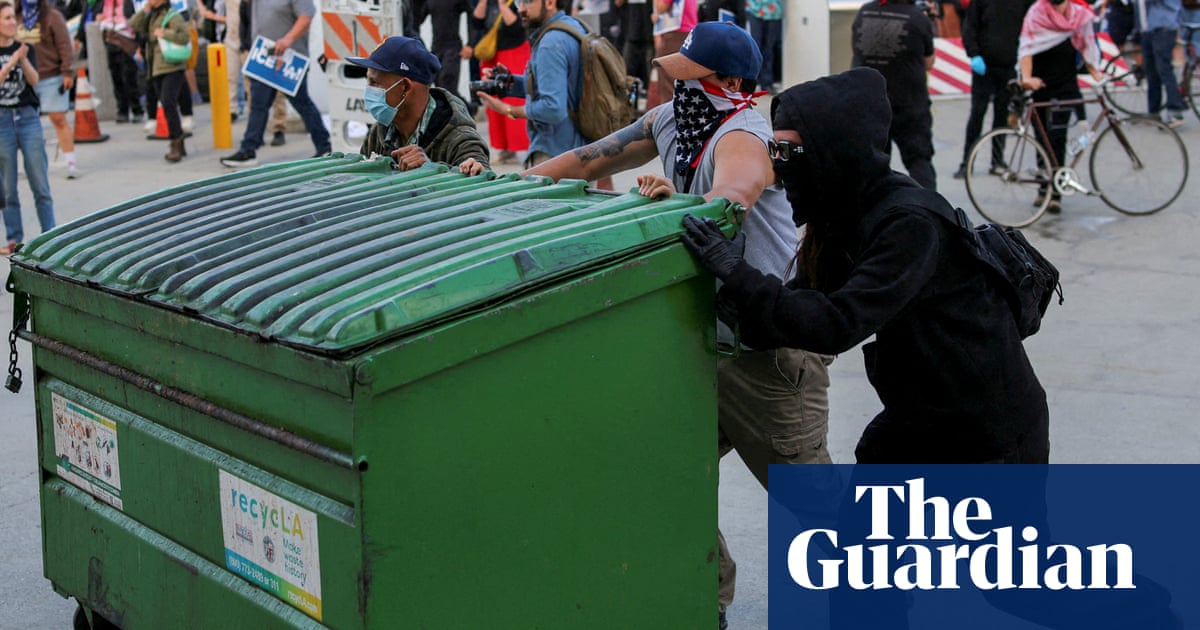For two days and two nights, Ronalyn Carbonel and her four children clung to the roof of their home as a huge storm raged around them. With the wind battering her village of Rizal, about 10 miles east of Manila in the Philippines, and water swirling through the rooms below them, they had no choice but to wait, hoping that someone would come to rescue them and hundreds of their neighbours.
“We did not have shelter, we did not have food … we just had to wait for the government for two days,” Carbonel said. “It is not easy, no electricity, no light, we just wait for the sun to rise. The children were scared, we had never experienced anything like this.”
Carbonel was speaking to the Guardian as Greenpeace activists and youth leaders from the Philippines protested outside the oil firm Shell’s headquarters in London on Wednesday demanding “accountability from major polluters and justice for all the loss and damage they have caused”.
The Philippines has always been hit by typhoons, but as the climate emergency has worsened the storms have become more violent, with more destructive winds and floods.
Last year in a record-breaking typhoon season, six storms battered the country in just a month. The super-typhoon Man-yi brought winds of up to 120mph and drove more than 650,000 people from their homes. In all, the storm season – “supercharged” by climate change, according to experts – affected more than 13 million people, destroyed lives and livelihoods and cost an estimated $500m.
Carbonel, who is president of her local homeowners association, said the storms had grown much worse since she was younger. “When I was a child I did not experience this type of strong typhoon,” she said. “We are scared but we are already preparing, we prepare food and medicines and water.”
A sofa belonging to Carbonel was one of the climate-wrecked household items put in giant glass boxes filled with water outside Shell’s headquarters on Wednesday. The possessions, which also included a television, shoes and a teddy bear, had all been destroyed in the latest typhoon season.

As Shell staff arrived for work, speakers played the sounds of children laughing, and people cooking or watching TV, which had been recorded in the Philippines. Those noises were then replaced with sirens like those used in the Philippines to warn people of impending floods.
Activists then smashed the glass cases, allowing the “flood” waters to spill out in front of the building.
Greenpeace UK’s climate campaigner, Maja Darlington, said: “The world is near breaking point and it is oil and gas giants like Shell, who pocket tens of billions every year from burning fossil fuels that drive this climate chaos, that are to blame. It’s time they coughed up and paid their climate debts.”
after newsletter promotion
Bon Gibalay, a youth leader from Bohol in the Philippines, who was part of the protest, said: “For far too long communities like mine have weathered climate impact after climate impact, while companies like Shell continue to profit from fuelling the climate crisis. By delivering these precious possessions, damaged and destroyed by typhoons supercharged by the climate crisis, from the Philippines directly by the doors of Shell, we demand accountability from major polluters and justice for all the loss and damage they have caused.”
During the latest storms, Carbonel’s house was spared the worst damage and she spent the night walking the streets warning neighbours through a loudhailer. Ten families whose homes were badly hit sheltered in her home until the storm receded.
With a few months to go before the next storm season is due, she says all she can do is hope the world takes notice and the big oil companies take responsibility for what they are doing.
“How can we ask those kind of people to pay? They are in government, in big companies, they are powerful, they are rich. For someone like me, what can I do? I just tell my children don’t worry, just pray to God [that the next] typhoon will miss us. I just tell them to pray.”

 3 months ago
59
3 months ago
59

















































